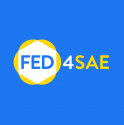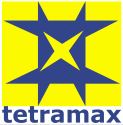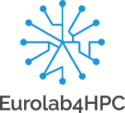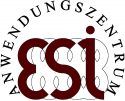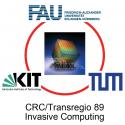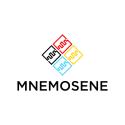11.3 Special Session: Rebooting our Computing Models
Date: Thursday 28 March 2019
Time: 14:00 - 15:30
Location / Room: Room 3
Organiser:
Pierre-Emmanuel Gaillardon, University of Utah, US
Chair:
Pierre-Emmanuel Gaillardon, University of Utah, US
Co-Chair:
Ian O'Connor, Ecole Centrale of Lyon, FR
With the current slowing down of Moore's Law, standard Von Neumann computing architectures are struggling more than ever to sustain the increase of computing needs. While alternative design approaches, such as the use of optimized accelerators or advanced power management techniques are successfully employed in contemporary designs, the trend keeps worsening due to the ever-increasing gap between on-chip and off-chip memory data rates. This trend, known as Von Neumann bottleneck, not only limits the system performance, but also acts nowadays as a limiter of the energy scaling. The quest towards more energy-efficiency requires solutions that disrupt the Von Neumann paradigm. In this hot topic session, we intend to elaborate on disruptive computing models far beyond our current Von Neumann computing model. Three talks will be provided: The first talk, from researchers from TU Delft, will cover quantum computing from the most basic physics to the practicalities of making a useful computer, including micro architecture and programming language). The second talk, from researchers from the University of Notre Dame, Georgia Tech and Penn State, will present new ways of computing using intrinsic oscillators. The third talk, from researchers from The University of California San Diego, will focus on memcomputing where self-organizing logic gates can be employ to solve complex computing problems very efficiently. In addition to provide a clear perspective to the DATE community beyond the currently hot novel architectures, such as neuromorphic or in-memory computing, this proposal also serve the purpose of tightening the link between DATE and the EDA community at large with the mission and roles of the IEEE Rebooting Computing Initiative - https://rebootingcomputing.ieee.org - that endorses it. We believe it will stimulate the EDA researchers to look into new grounds to develop their activities.
| Time | Label | Presentation Title Authors |
|---|---|---|
| 14:00 | 11.3.1 | FROM QUBIT TO COMPUTER Authors: koen bertels and Carmen G. Almudever, TU Delft, NL Abstract This talk will present the basics of quantum computing using superposition and entanglement between quantum bits, called qubits and also what programming a quantum computer actually involves. It will also highlight the quantum programming language, OpenQL, that has been developed in Delft and demonstrate how one can execute and simulate a quantum algorithm on the QX simulation platform that was developed for that purpose. The talk will also cover the core challenges of this field which have to do with the error rates and loss of a coherent state of the qubits. Enough attention will be given to the definition and development of a quantum computer architecture of which already two experimental versions have been implemented. Finally, the speaker will highlight ways to make the architecture sufficiently generic to control two quite different quantum technologies namely with superconducting and semiconducting qubits and explain the tight collaboration with Intel in this research. |
| 14:30 | 11.3.2 | INTRINSIC COMPUTING USING WEAKLY COUPLED OSCILLATORS Author: Nagadastagiri Reddy, Penn State, US Abstract The quest for alternate efficient computational systems is becoming critical as Moore's law scaling nears to an end. In this work, progress towards solving hard computational problems and common video processing applications using a weakly coupled oscillator system will be demonstrated. The paper will focus on synergistic advances in device fabrication, circuit design and system design in realizing such systems. These systems show promise of significant reduction in energy consumption compared to traditional CMOS designs. |
| 15:00 | 11.3.3 | THE MEMCOMPUTING PARADIGM Author: Massimiliano Di Ventra, UCSD, US Abstract This talk will discuss how to employ memory (time non-locality) in a novel physics-based approach to computation, memcomputing, and its practical realization with self-organizing logic gates (SOLGs). SOLGs are terminal-agnostic gates that self-organize to always satisfy their logical proposition regardless to which terminal(s) the truth value is assigned. As examples, the talk will highlight the polynomial-time solution of prime factorization, the search version of the subset-sum problem, and approximations to the Max-SAT beyond the inapproximability gap using polynomial resources. The talk will also show that these digital memcomputing machines compute via an instantonic phase, implying that they are robust against noise and disorder. The digital memcomputing machines that are proposed can be efficiently simulated, are scalable and can be easily realized with available nanotechnology components. This work is supported in part by MemComputing, Inc. (http://memcpu.com). |
| 15:30 | End of session Coffee Break in Exhibition Area
On all conference days (Tuesday to Thursday), coffee and tea will be served during the coffee breaks at the below-mentioned times in the exhibition area. Lunch Breaks (Lunch Area)On all conference days (Tuesday to Thursday), a seated lunch (lunch buffet) will be offered in the Lunch Area to fully registered conference delegates only. There will be badge control at the entrance to the lunch break area. Tuesday, March 26, 2019
Wednesday, March 27, 2019
Thursday, March 28, 2019
|



